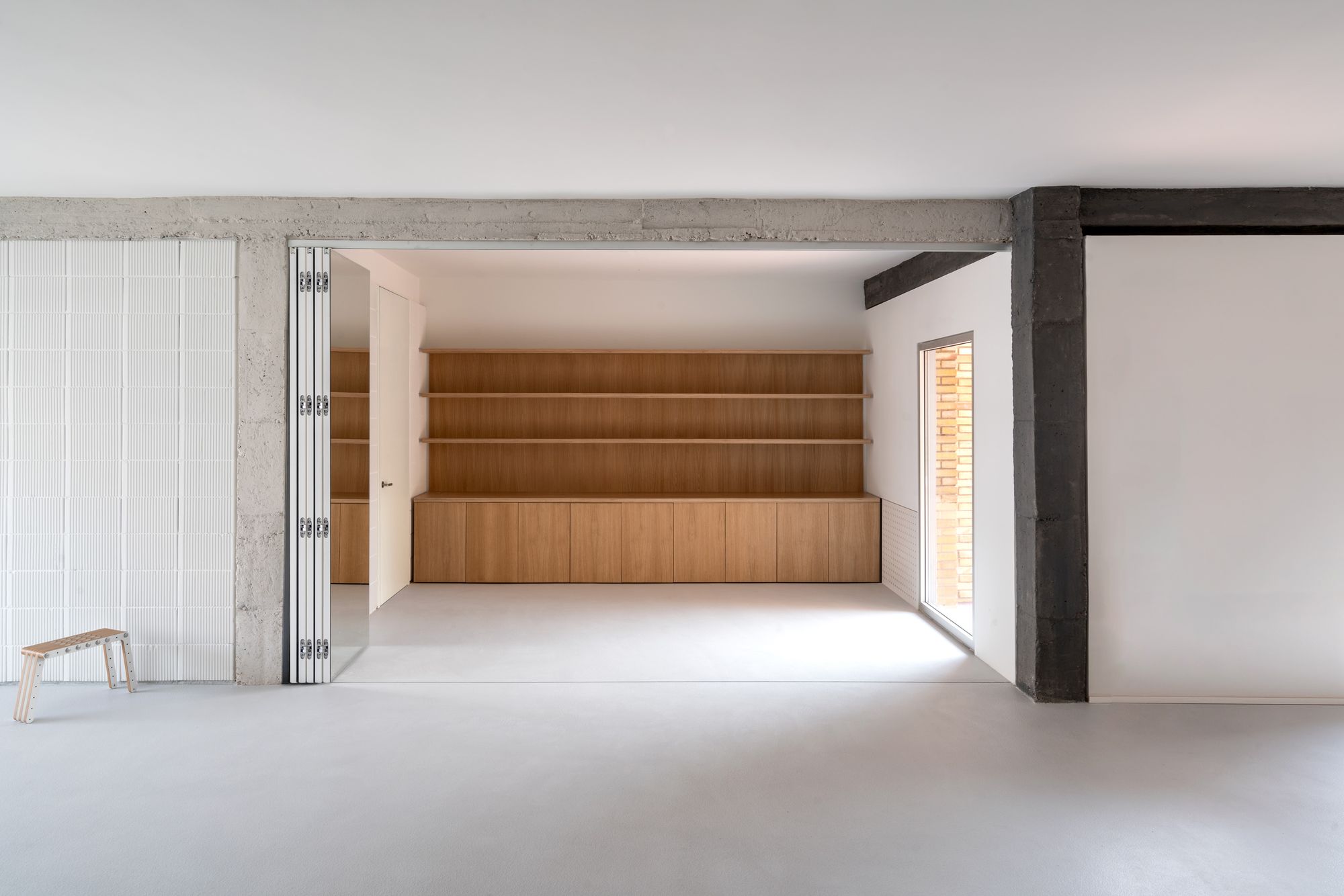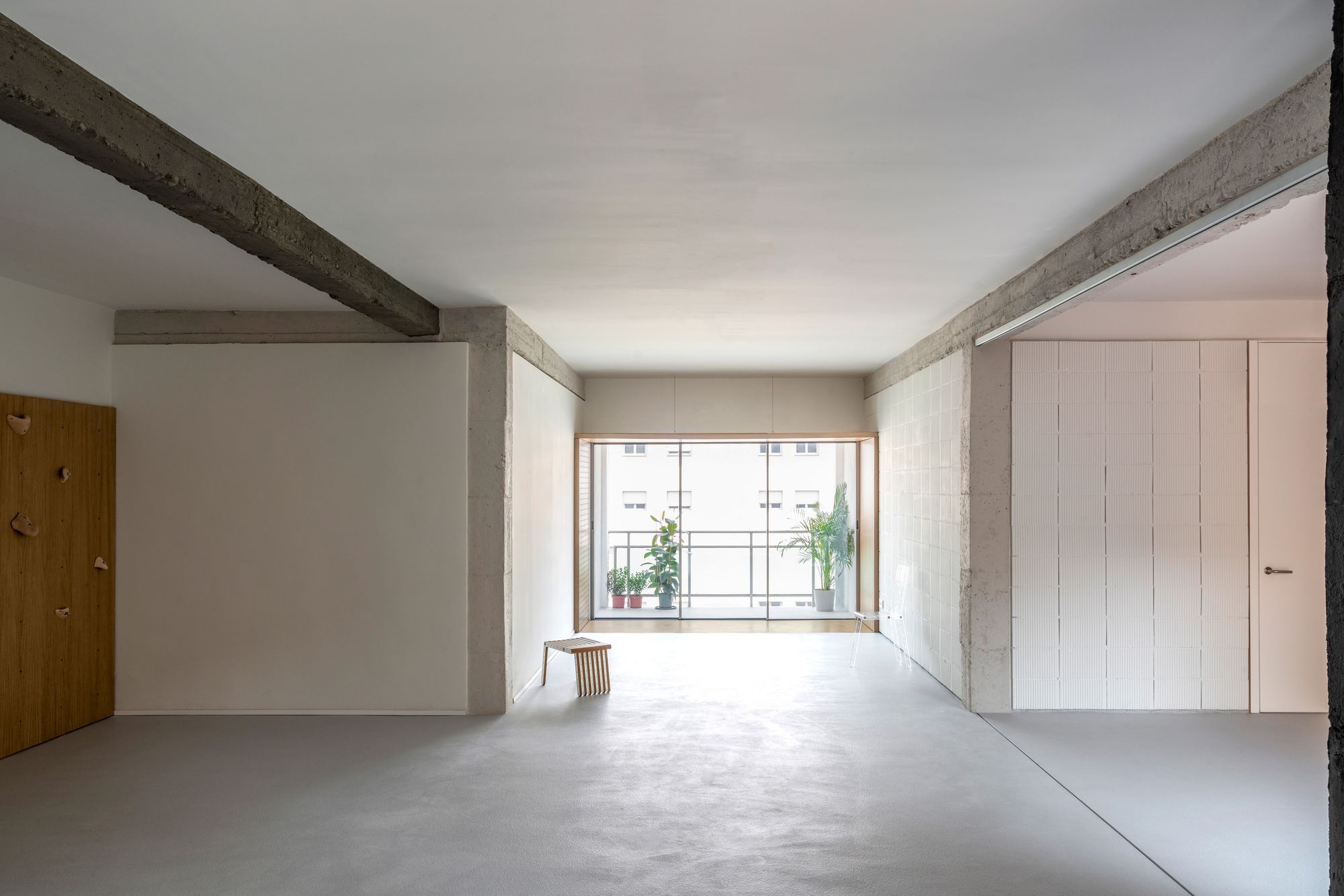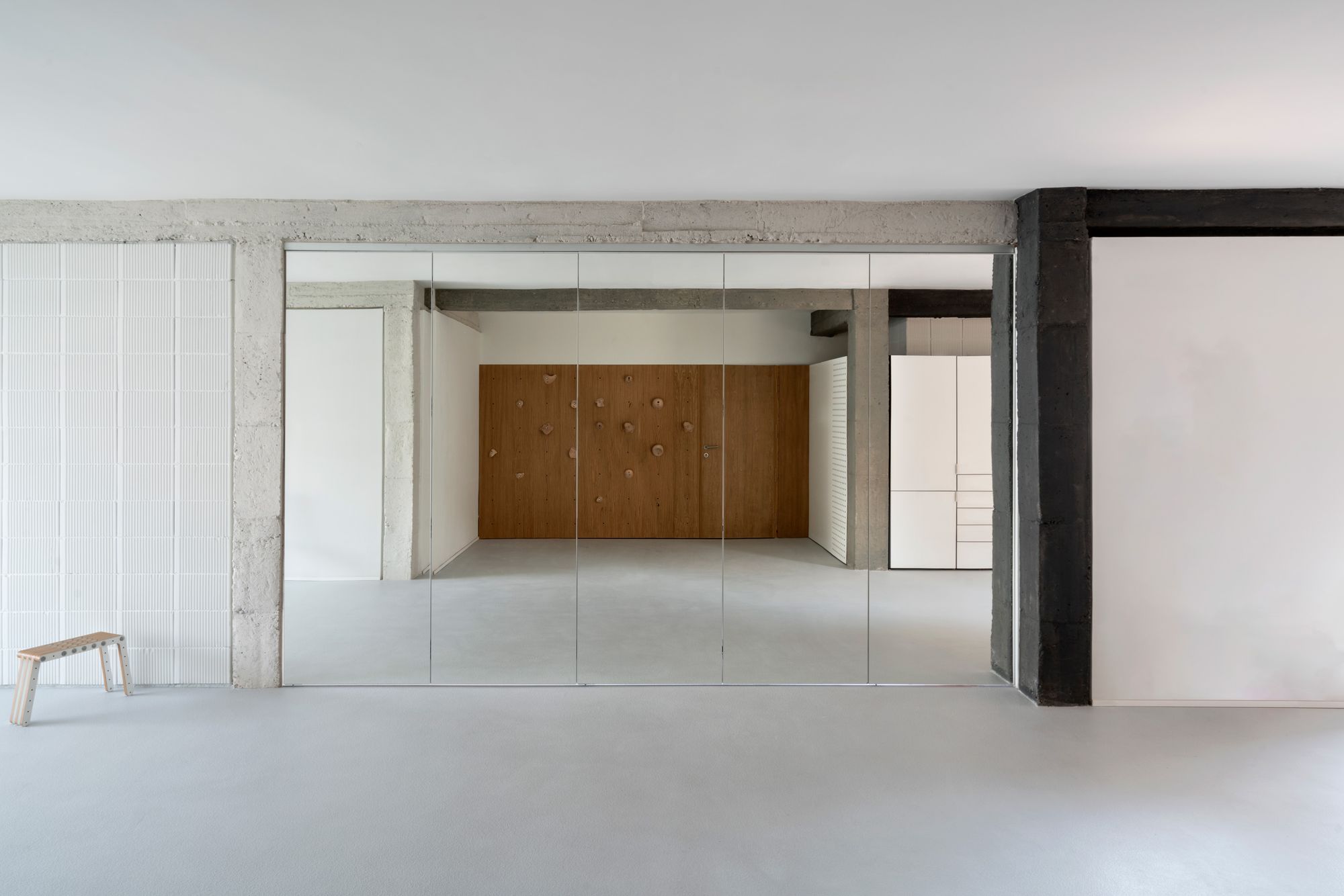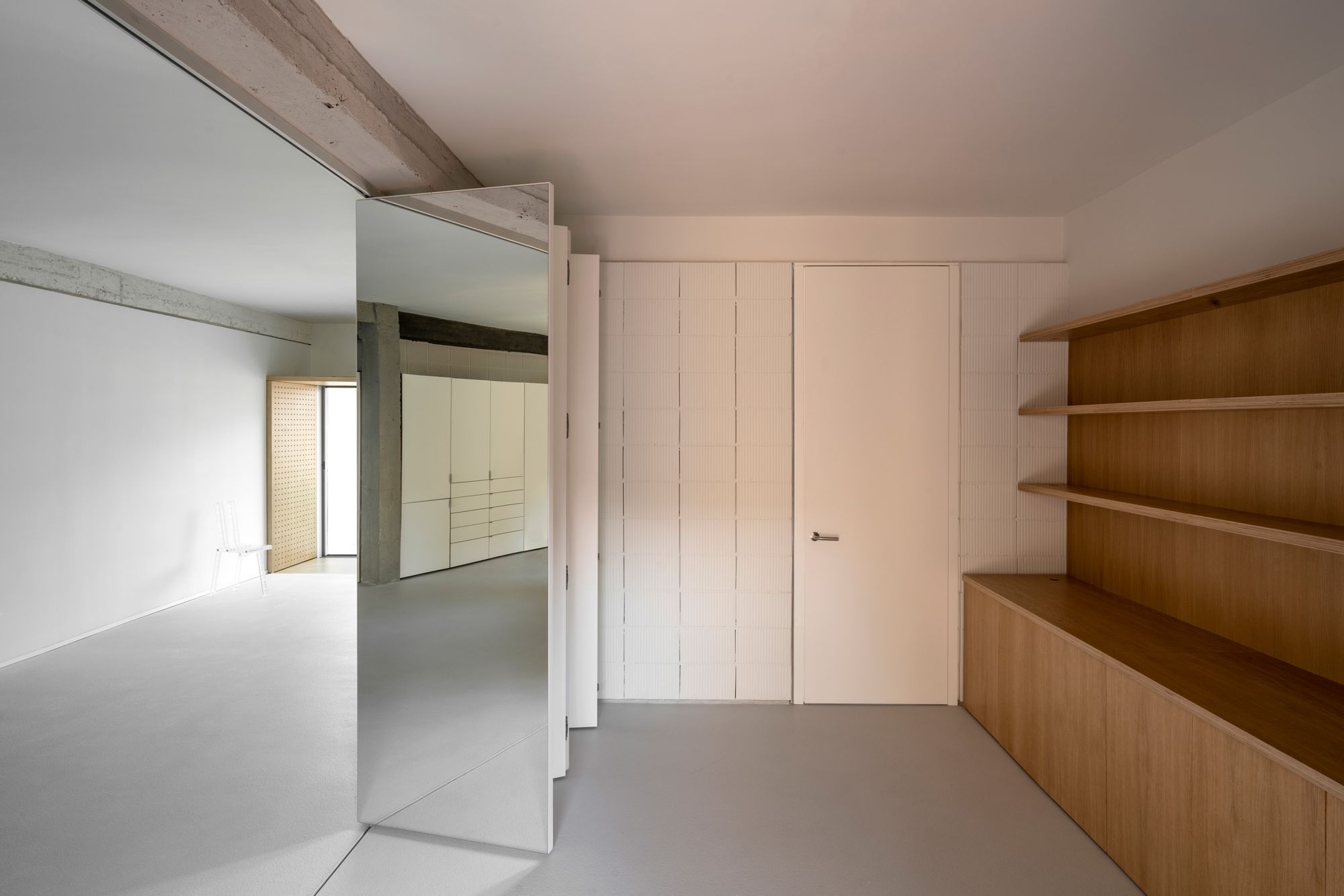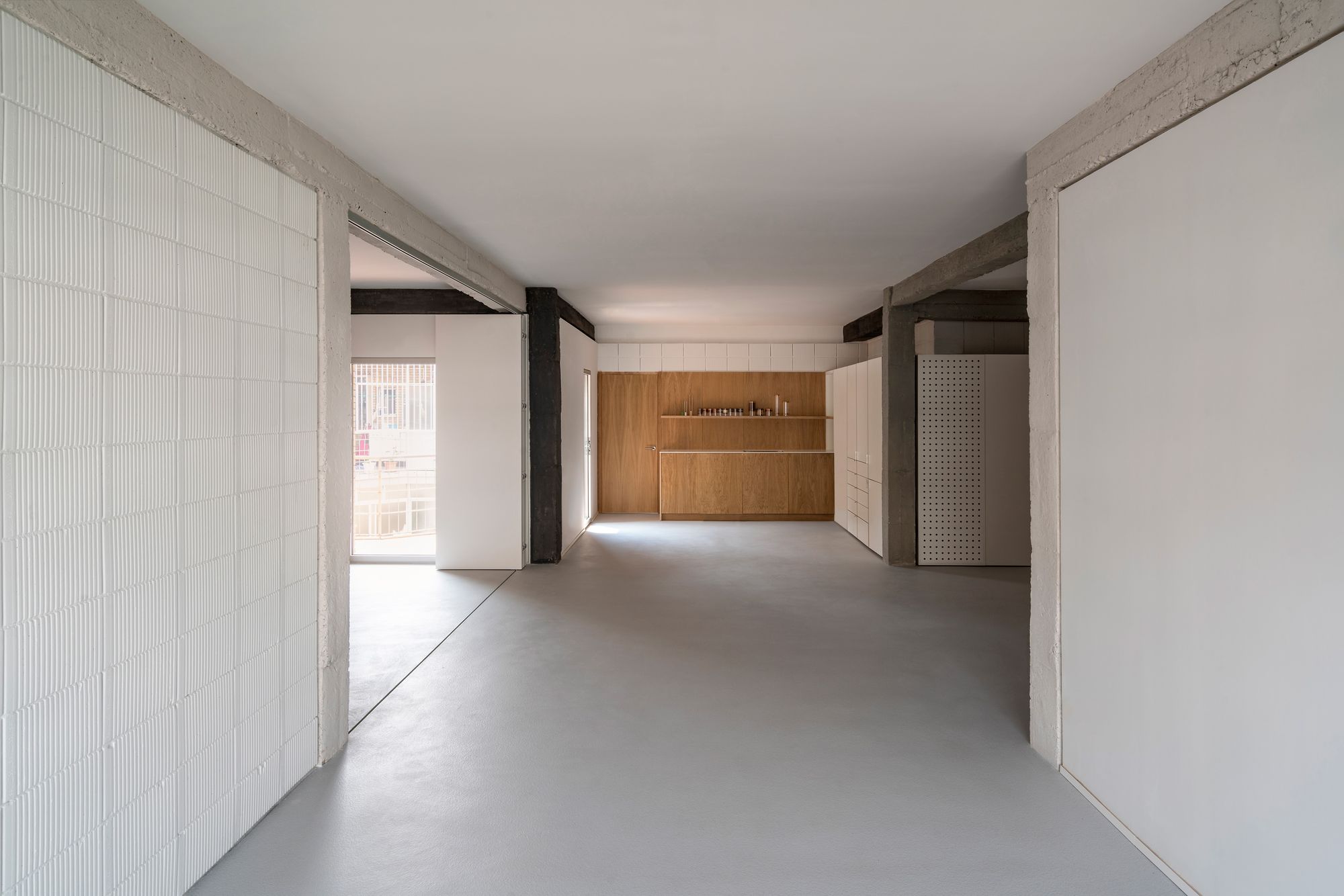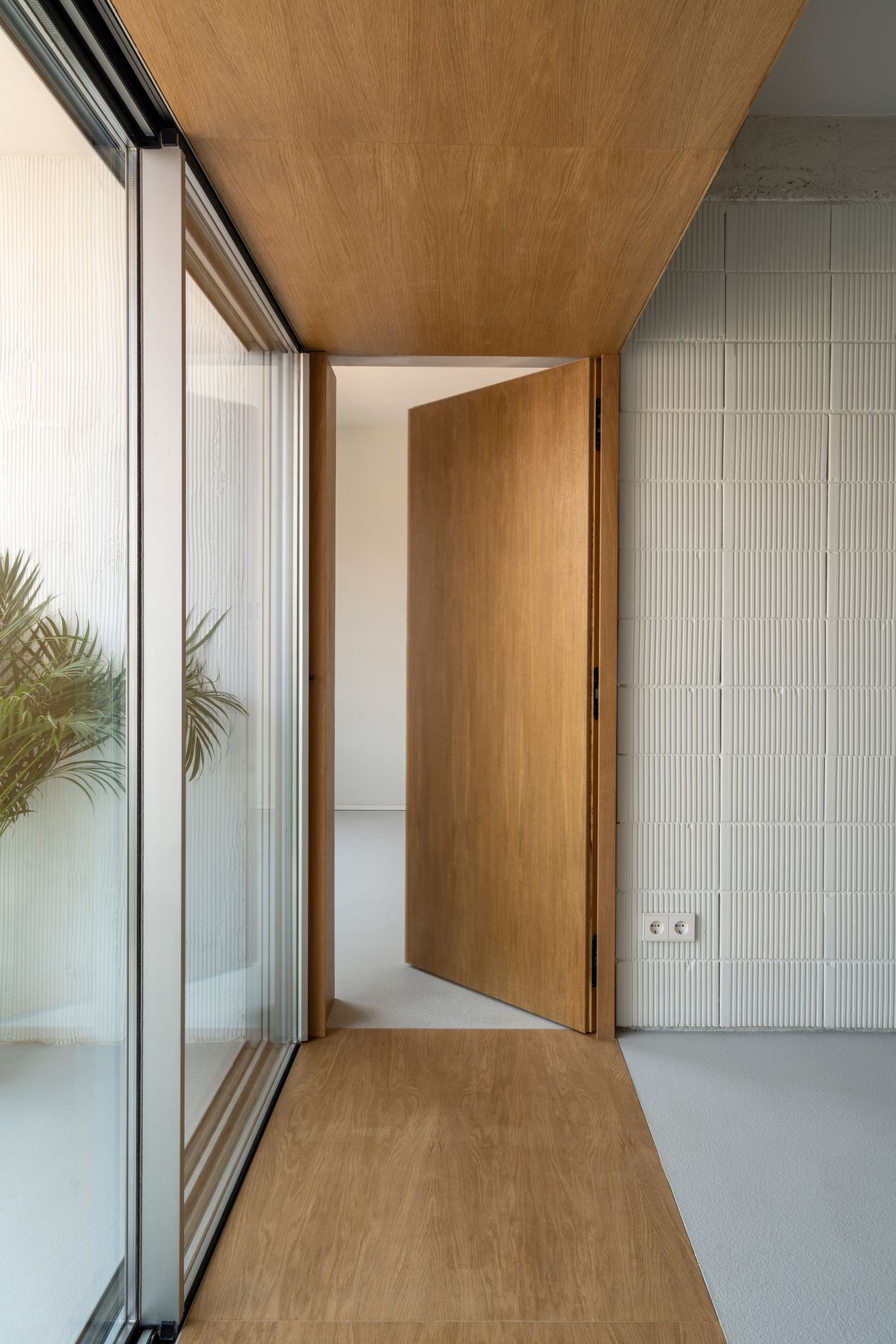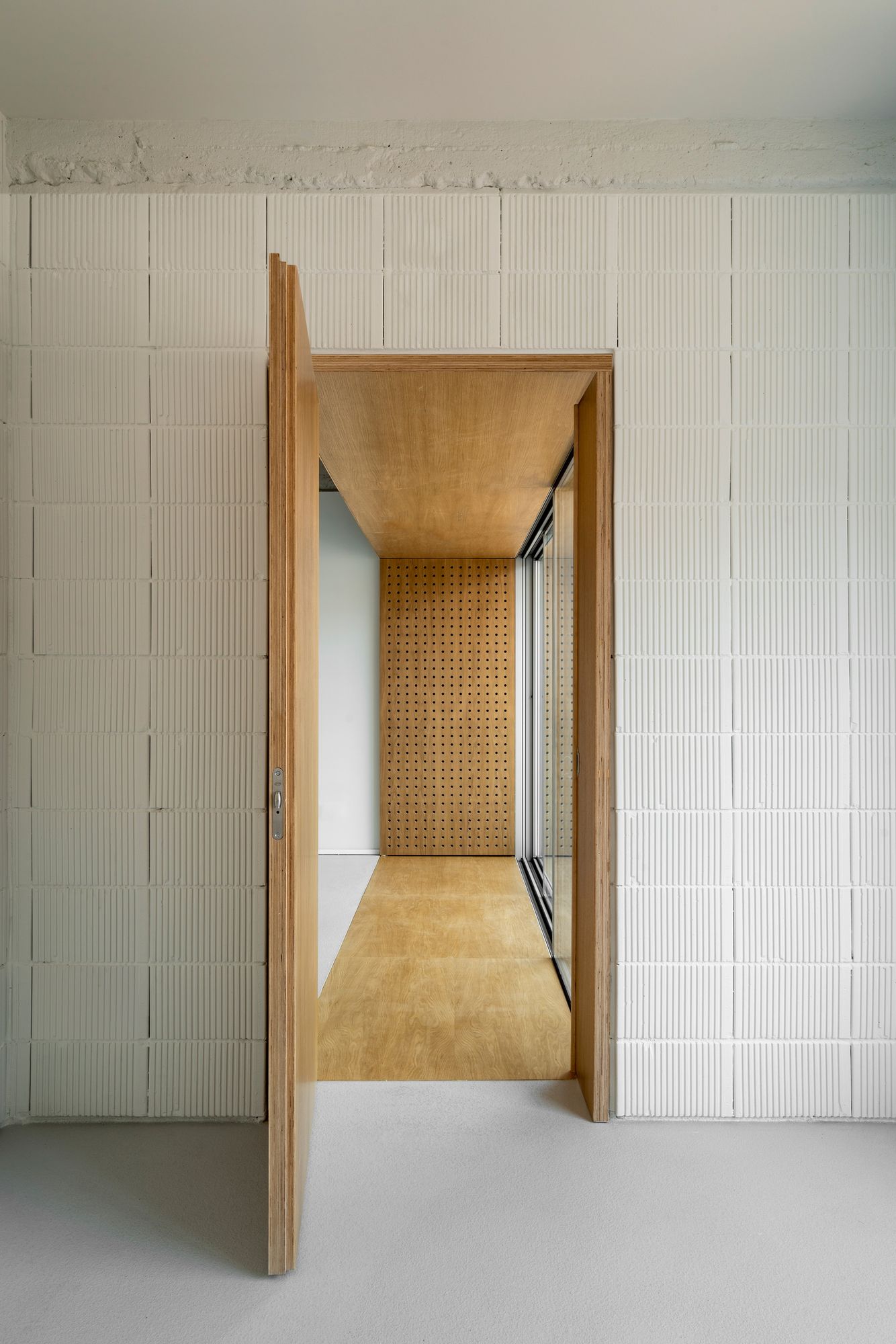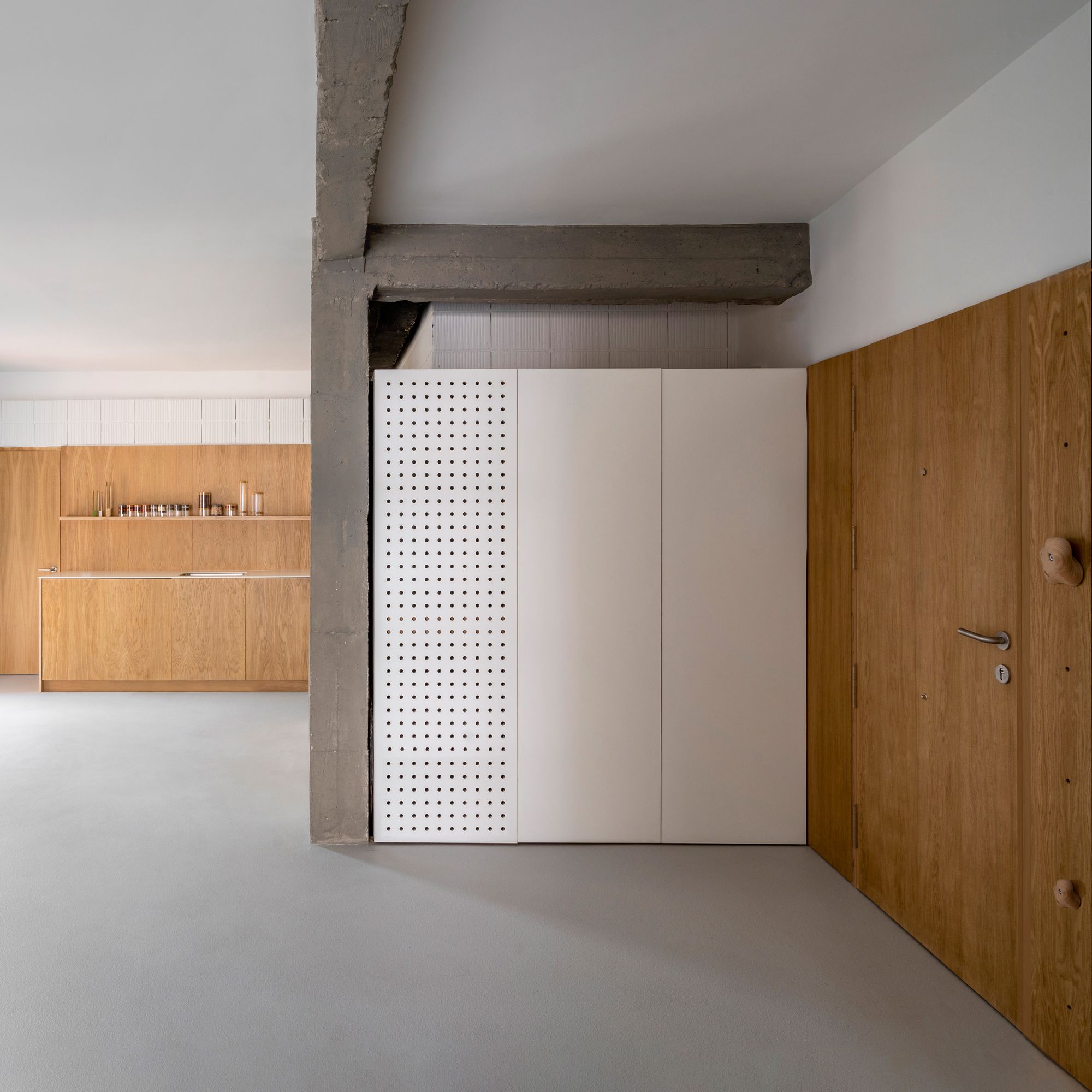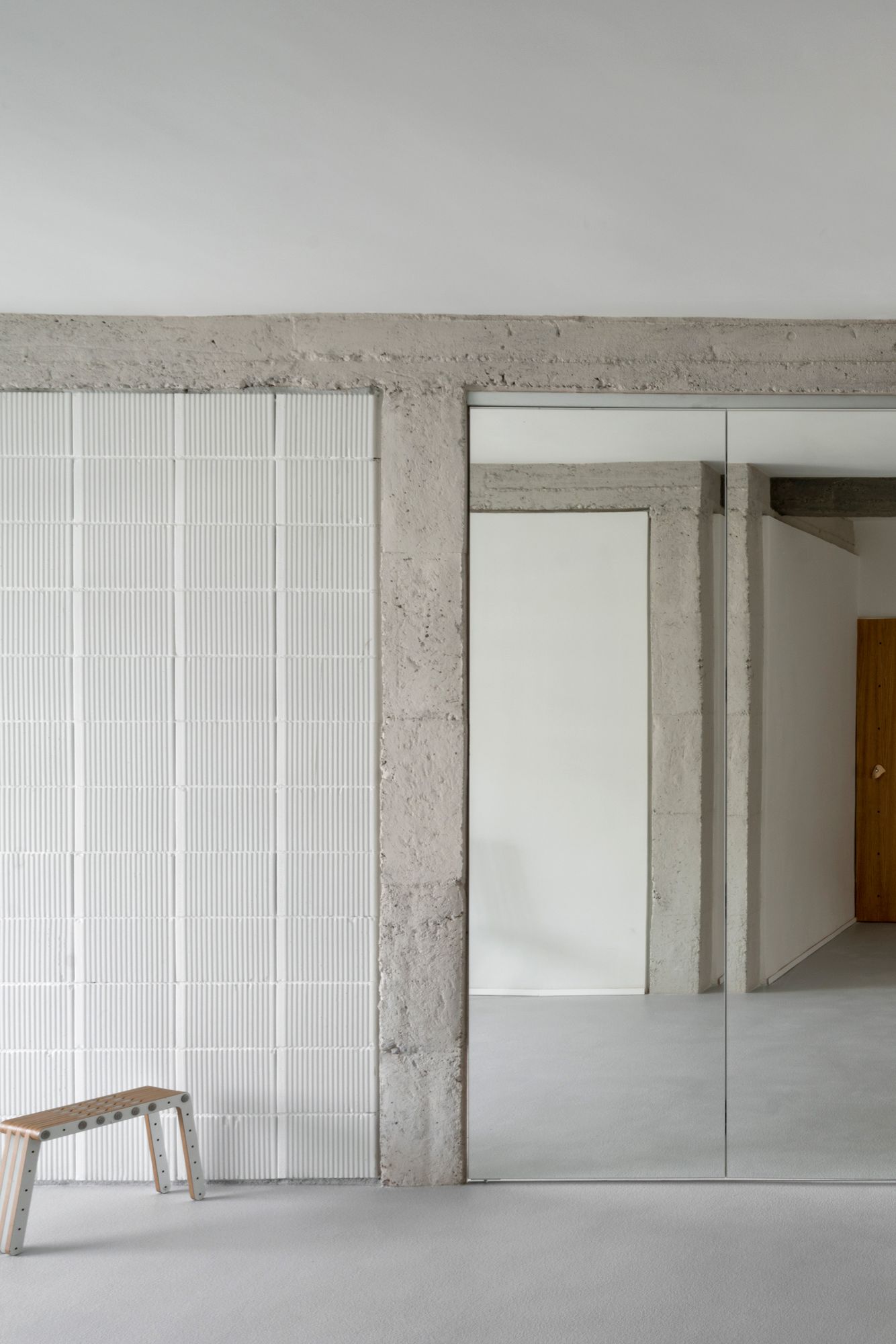NON–BINARY CROSS-SPACE (III) is a minimalist interior located in Madrid, Spain, designed by PACHÓN—PAREDES. The concept focuses on reinterpreting residential spaces in concrete buildings prevalent in Madrid and other Spanish suburban areas since the mid-20th century. This iteration of the project explores the adaptation of these structures to meet modern spatial requirements. The strategy encompasses both construction and economics, utilizing the inherent features of the buildings, such as slabs, supports, and facades, to reconfigure the living areas. At the heart of this design philosophy is the differentiation between ‘binary’ or defined spaces, and ‘non-binary’ or undefined, versatile areas. The goal is to limit the number of defined spaces, thus creating a ‘cross-space’ – an unoccupied, adaptable area whose function changes based on its structural position. Addressing the demand for architectural flexibility in a socio-culturally diverse society, the space proposes a departure from traditional space delineation influenced by socio-economic factors.
This approach advocates for spatial fluidity, allowing areas within the building to evolve in response to the changing needs of its inhabitants. The project’s ‘non-built’ segments, or ‘cross-spaces,’ are dynamic, akin to urban public spaces in their versatility. These areas are designed for easy reconfiguration, serving a range of purposes from cooking and office work to sports and relaxation. The ‘binary’ spaces, which cater to conventional domestic needs, surround these central, adaptable zones. This architectural approach effectively merges private, individual areas with public, communal spaces. Beyond spatial design, the interior incorporates elements like natural lighting, ventilation, and energy efficiency. The project reconnects interior spaces with previously enclosed terraces, enhancing adaptability and connectivity with the external environment. Material and construction choices in the project are also guided by a principle of neutrality, aiming for a design that is both universal and adaptable, ready to be personalized by its users.
